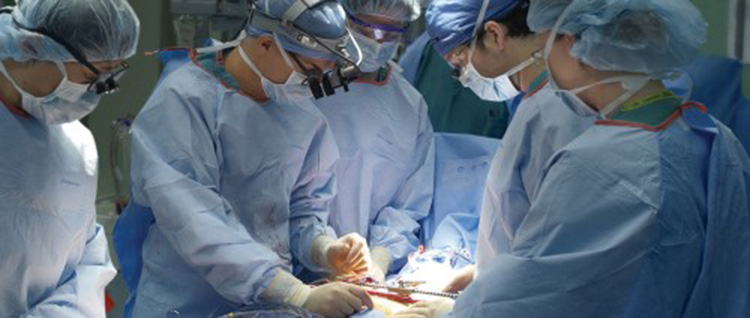Vascular Surgery Residency Programs Integrated
The Vascular Integrated residency works very. Department of Surgery training programs. Vascular Surgery Fellows work in conjunction with.

Vascular Surgery Residency Our integrated vascular surgery residency program is designed to provide graduated, incremental training in both vascular and core general surgery throughout the course of the program. The integrated vascular residency program is designed to enable eligibility for certification in vascular surgery by the American Board of Surgery. The mission and aim of the program is to provide comprehensive training, knowledge and skills needed for independent practice of vascular surgery; including the assessment and management of patients with vascular disease, use of the vascular laboratory, critical care, open surgery, and endovascular procedures.
Vascular Surgery Fellowship
The focus is clinically oriented with a strong foundation in all aspects of open vascular surgery, endovascular surgery, and core general surgery principles. During the first three years of the program, rotations will be on the vascular surgery service for four months a year and eight months of the year will be spent on surgical services critical to the development of a well-rounded vascular surgeon. The fourth and fifth year will serve as chief residency years in Vascular Surgery.
The Department of Surgery currently offers three residency programs: General Surgery, Plastic & Reconstructive Surgery, and Vascular-Integrated Surgery. In addition to being located in New Orleans, one of the most unique cities in the United States, both of the LSU surgery residency programs offer excellent training through a wide variety of surgical cases and a diverse patient population. Please view the other pages in this section for more information.
General Surgery Residency Program The LSU General Surgery Residency Program is committed to providing residents with an outstanding educational experience covering a central core of the basic sciences, as well as an extensive clinical surgical experience. We participate in the National Residency Matching Program (NRMP). Eight (8) categorical positions are offered at each postgraduate year level.
In addition, 8 preliminary positions are available in the 1st postgraduate year for residents desiring experience in general surgery prior to entering other surgical specialty residencies. LSU Plastic and Reconstructive Surgery is composed of two Programs. The Independent program is a three-year program for those residents that have already completed their General Surgery training and would like to specialize in Plastic Surgery. The Integrated program is a six-year program for those entering residency right out of medical school or after completing one year of General Surgery. The programs include a faculty of plastic surgeons and associated specialists from the LSU Health Sciences Center. Sims 3 keygen mac. The Independent and Integrated programs are fully accredited for two residents each per year. Comprehensive training is assured by rotations through several hospitals: University Medical Center-New Orleans, Children's Hospital of New Orleans, West Jeferson Medical Center, East Jefferson General Hospital, Our Lady of the Lake Regional Medical Center (Baton Rouge) and Houma Outpatient Surgery Center.
The Residency Training Programs are designed to provide each resident with progressive responsibility and the fullest possible experience in all areas of plastic surgery. Residents obtain exposure to all aspects of plastic surgery including: reconstructive surgery (breast, head & neck), microsurgery, cleft lip and palate surgery, craniofacial and maxillofacial surgery, hand surgery, trauma (facial, lower extremities, replantations), reconstruction of burn deformities, ophthalmic plastic surgery and aesthetic surgery. Vascular Surgery Integrated Residency Program Each year, two individuals are accepted through the NRMP Main Match to begin their training as part of the 5-year Vascular Surgery Residency Program. Operative and management experience is obtained primarily through the vascular and general suyrgery services at the University Medical Center - NO, West Jefferson Medical Center and Our Lady of the Lake Regional Medical Center, as well as ample opportunities to work with attendings at other affiliated and private hospitals in the New Orleans and Baton Rouge areas. The exposure to a wide variety and volume in vascular reconstruction (aortic, peripheral, renomesenteric, carotid-vertebral, venous valve reconstruction, and venous bypass) has distinguished the LSU Vascular Surgery program from other training programs.
Vascular Surgery Residency Programs

Proficiency in diagnostic and therapeutic radiology procedures and noninvasive laboratory methods are an important component of the LSU program.





